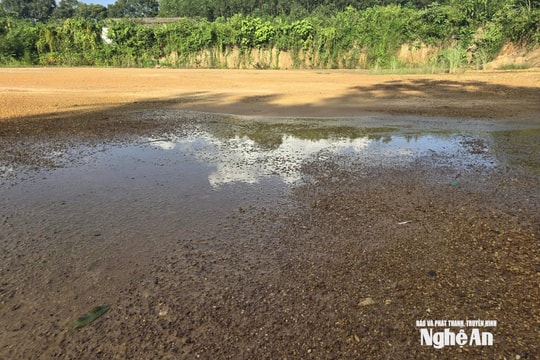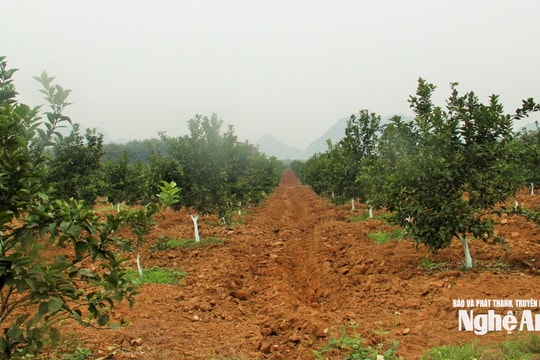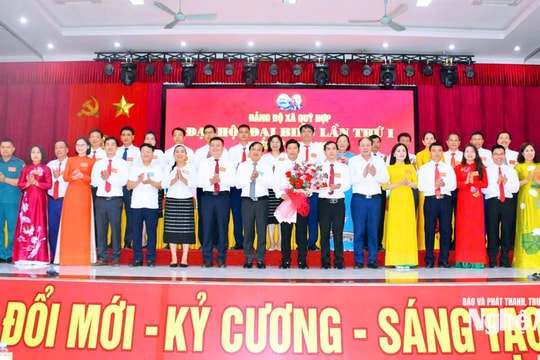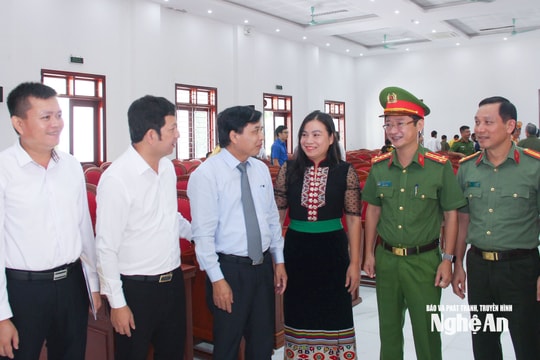Poor variety, some Quy Hop orange areas have to be cut down
(Baonghean.vn) - In the Quy Hop orange region, there are many facilities producing orange varieties using grafting methods. The parent trees and seed gardens are not isolated, so this variety has a potential risk of pests and diseases.
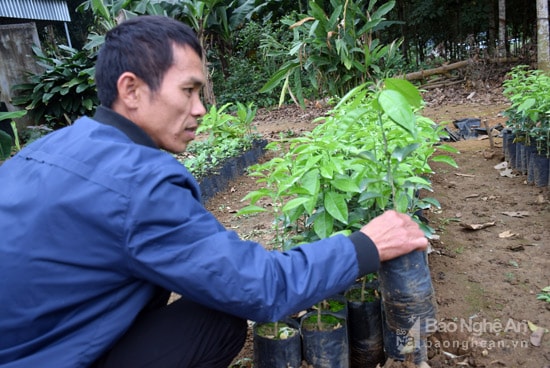 |
| Mr. Tran Van Quang in Nam Loi hamlet, Van Loi commune (Quy Hop) produces orange seedlings on the spot to supply orange growers in the area. Photo: Xuan Hoang |
Mr. Tran Van Quang - owner of an orange nursery garden in Nam Loi hamlet, Van Loi commune, said: We accept grafting and produce and sell all kinds of orange seedlings. People in the area bring buds from orange trees (orange garden owners choose the parent tree) to us to graft into seedlings; the fee is 1,000 VND/grafted bud. If you buy seedlings that we have already grafted and just need to bring them home to plant, the price is 14,000 VND/tree.
Starting to produce seedlings in early 2016, Mr. Quang's family nursery now has thousands of seedlings ready to supply to orange growers in the area. He said that each year his facility produces about 20,000 orange seedlings of all kinds; mainly by grafting, the parent trees are selected from orange trees that grow well in the area, and are not planted in isolation.
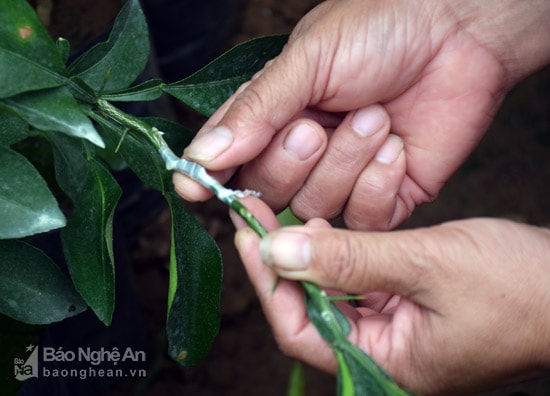 |
| Grafting orange seedlings using traditional methods at small orange seedling production facilities in Quy Hop district. Photo: Xuan Hoang |
Along the roads in the Quy Hop orange growing area, we also approached many orange seedling production facilities. There were seedling gardens that lacked care, and many types of pests and diseases appeared on the leaves.
Orange varieties being sold haphazardly on the market affect the quality of orange gardens, causing stunted trees, infected with yellow tea disease and other pests; some trees do not bear fruit...
Mr. Le Quang Hoa in Minh Dinh hamlet, Minh Hop commune grows 1 hectare of oranges, with 450 Xa Doai orange trees of golden heart. Every year, he invests in fertilizers and takes care of them according to the correct procedures. However, after 4 years of hard work in the orange garden, up to 1/3 of the total number of trees are infected with yellow tea disease. According to Mr. Hoa, the reason the orange garden is infected is because of poor quality seedlings.
Currently, the Department of Agriculture and Rural Development of Quy Hop district has not yet counted how many hectares of orange trees had to be cut down and replanted due to pests and diseases.
According to Mr. Quan Vi Giang - Head of the District's Department of Agriculture and Rural Development, the area of orange trees in the business phase that had to be cut down due to pests and diseases in recent years is not small. Also according to the department's data, currently in the local orange production area, there are about 9 establishments specializing in producing seedlings, supplying hundreds of thousands of orange seedlings each year.
These orange seedling production facilities mainly graft on-site, the parent trees and seedlings are not isolated, so the quality of the seedlings will not be guaranteed. Currently in Quy Hop district, there are about 350 hectares of oranges infected with yellow tea disease and other diseases.
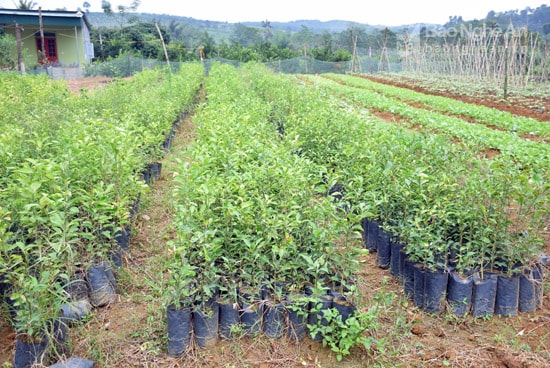 |
| Orange seedlings are not properly cared for in the Quy Hop orange growing area. Photo: Xuan Hoang |
According to the Department of Crop Production and Plant Protection, currently in the whole province there is only one unit with seed sources from parent trees and parent tree gardens. That is Yen Tinh Rubber Joint Stock Company (Nghia Dan district) with 3 hectares of parent tree gardens including PQ tangerines, green-skinned grapefruits, Dien grapefruits, four-season lemons, peach-heart lemons, and wax avocados, which were certified by the Department of Agriculture and Rural Development in 2015.
Currently, the Center for Fruit and Industrial Tree Research is proposing the Ministry of Agriculture and Rural Development to certify Quang Tien pink grapefruit as a new agricultural crop variety. All other organizations and individuals producing and trading fruit seedlings in the province have not been granted certificates for parent trees and parent tree gardens.
Thus, for orange varieties, there is no parent tree and parent tree garden certified by the competent authority.
Therefore, the quality of seedlings consumed in the market in the province is almost uncontrolled, this is a potential risk of seedlings not ensuring quality, especially genetic resources and diseases. From there, it affects the production results of fruit tree growers.
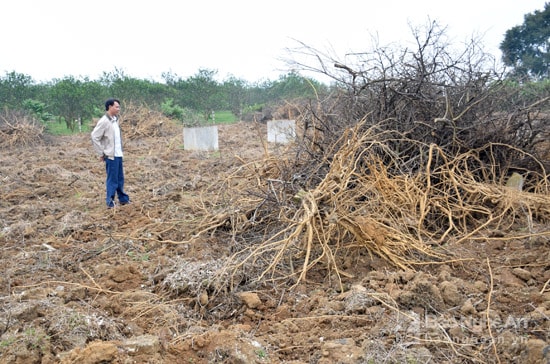 |
| Many households in Quy Hop have cut down orange trees due to ineffectiveness. Photo: XH |
Xuan Hoang

.jpg)
